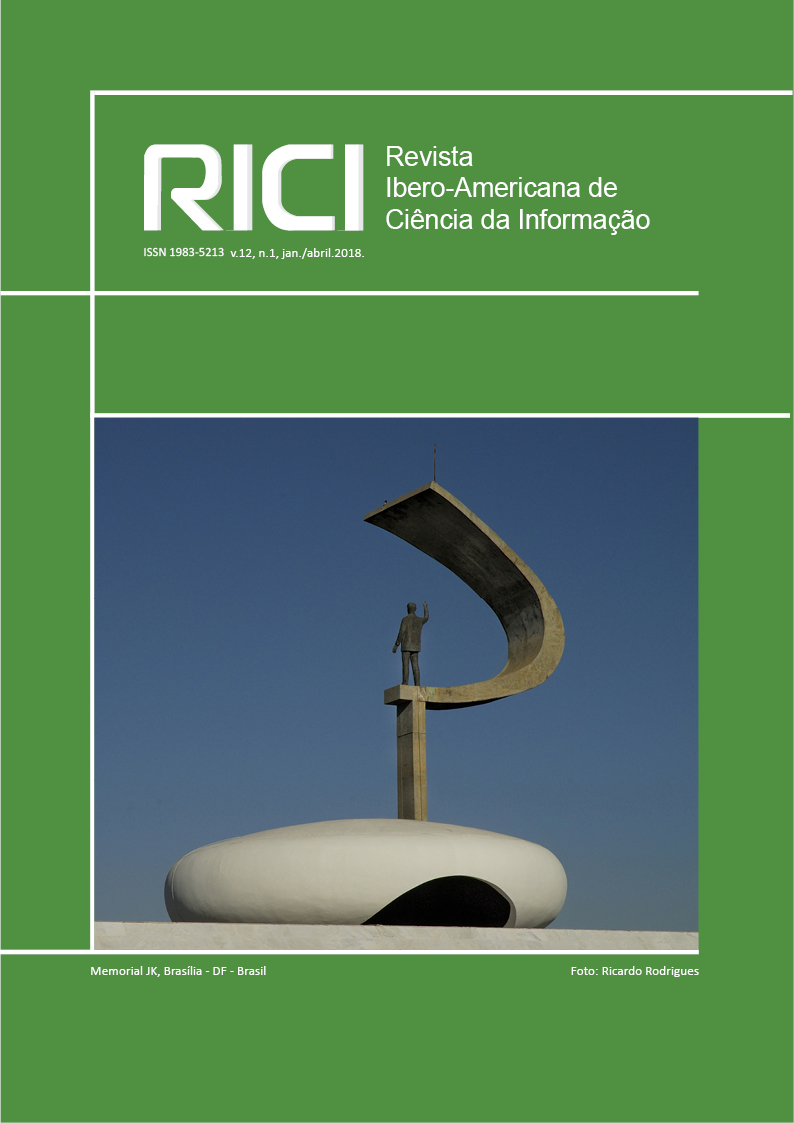Information as object of study: history of the post graduate courses in Information Science of the University of Brasilia;
DOI:
https://doi.org/10.26512/rici.v12.n1.2019.19163Keywords:
Archival Science. Master degree. Doctoral degree. Librarianship. Museology. Research. University of Brasilia.Abstract
Describes the context, creation and trajectory of the post-graduate courses of the University of Brasilia´s Faculty of Information Science. Detects the main research lines which guided its first post graduate course at Master level, from its genesis and throughout its history, highlighting some examples. From the Master experience and its consolidation, it created the Doctorate in Information Science, integrating the areas of Librarianship, Archival Science, and Museology, under the same umbrella of the post ”“ graduate studies in Information Science. Analyses quantitatively the production of the thesis and dissertations, in the period comprised between 2006 and 2018, with thematic research visualizations. Due to the continuous technological and cultural changes in society concludes for the necessity to integrate and anticipate in a continuous and adequate way the information needs and demands of users and organizations.
Downloads
Downloads
Published
How to Cite
Issue
Section
License
Copyright Notice
Authors who publish in this journal agree to the following terms:
- Authors retain copyright and grant the journal right of first publication with the work simultaneously licensed under the Creative Commons Attribution License 4.0, allowing the sharing of work and recognition of the work of authorship and initial publication in this journal.
- Authors are able to take on additional contracts separately, non-exclusive distribution of the version of the paper published in this journal (ex.: distribute to an institutional repository or publish as a book), with an acknowledgment of its initial publication in this journal.
- Authors are permitted and encouraged to distribute their work online (eg.: in institutional repositories or on their website) at any point before or during the editorial process, as it can lead to productive exchanges, as well as increase the impact and citation the published work.
















